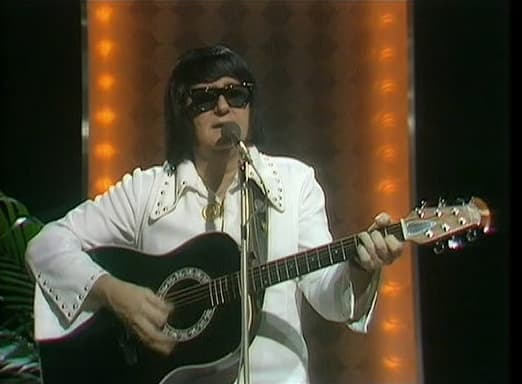
Mean Woman Blues: A Raw, Unfiltered Look at Love’s Treacherous Side
The year 1963 was a pivotal one for pop music. The British Invasion was on the horizon, but in America, the charts were still dominated by a powerful and emotive voice unlike any other. That voice belonged to the one and only Roy Orbison. In the summer of that year, he gave us a one-two punch that would etch his name into the annals of rock and roll history. One of those punches was the searing, almost feral blues-rock number, “Mean Woman Blues.” While the song was released as the B-side to his chart-topping smash hit, “Blue Bayou,” it was a track that stood on its own, showcasing a side of Orbison that was raw, a little rough, and filled with a desperate, heartbroken fury.
The original version of “Mean Woman Blues” peaked at number 5 on the UK Singles Chart. However, it was another version, released by a then-rising star named Elvis Presley, that many first heard. Presley’s version, from the soundtrack of his 1957 film “Loving You,” was a high-energy rockabilly romp, full of youthful swagger. But for those who knew the raw power of Roy Orbison, his take was the definitive one. It wasn’t about youthful swagger; it was about the lived-in pain of a man who had seen the worst of love.
Fast forward to 1972. The world had changed. Rock and roll was heavier, more complex. But the pain of a “mean woman” remained universal. It was in this setting that Roy Orbison took the stage in Australia, and what he delivered was a masterclass in emotional vulnerability and controlled chaos. This particular live version, from his 1972 Australian tour, isn’t just a performance; it’s an exorcism. He tears into the song with a ferocity that belies his reputation as the “Caruso of Rock.” The usually stoic and somber man in dark glasses sheds his polished persona for a few minutes, letting the raw emotion of the lyrics pour out.
The song’s meaning is laid bare in its title. It’s a classic blues lament about a woman who is unfaithful, cruel, and manipulative—a woman who drives a man to the brink. But in Orbison’s hands, it becomes more than just a blues standard. It becomes a deeply personal confession. He sings with a tremor in his voice that suggests genuine heartache, as if he’s reliving every moment of betrayal. His voice, that magnificent instrument, soars and dips, from a near-whisper of defeated resignation to a full-throated cry of frustration. The live setting captures this perfectly, the grit and imperfections only adding to the authenticity.
Listening to this live performance today, one can’t help but feel a pang of nostalgia for a time when music was less about production and more about pure feeling. It’s a reminder of what made Roy Orbison a legend. He wasn’t just a great singer; he was a great storyteller, capable of conveying a universe of emotion in a single note. This live rendition of “Mean Woman Blues” is a testament to that timeless power, a raw and unvarnished glimpse into the soul of a man who knew a thing or two about heartache. It’s a memory, a feeling, and a powerful piece of music that still resonates with anyone who has ever been wronged by love.